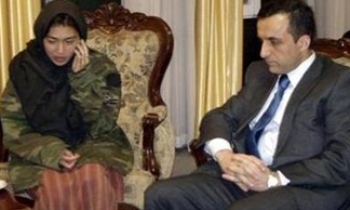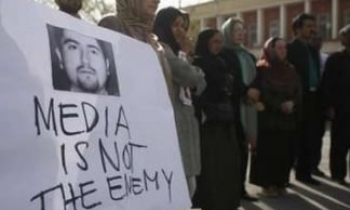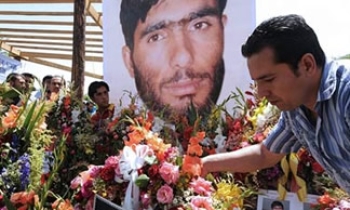The big fish always eat the small fish. Just the way, big newspapers elbow out small newspapers. Yet, grassroots, community newspapers can survive – as some in South Africa have been doing. And the mantra is the same for all of them: editorial content must have a local focus and should be relevant to members of the newspapers' communities.

These findings have been reported in Key Editorial and Business Strategies: A Case Study of Six Independent Community Newspapers, published recently by the Sol Plaatje Institute for Media Management (SPI). Funded by the Media Development and Diversity Agency (MDDA), SPI conducted this study with the goal of assisting small independent newspapers by exploring and publicising the many challenges that they face in their efforts to become sustainable enterprises. The intent, according to the institute, was to reveal key business and editorial strategies successful publications have adopted to assist them in overcoming these challenges.
SPI conducted in-depth case studies of six successful South African newspapers serving their local communities. Newspapers were selected from a pool of 20 newspapers, which were nominated as successful ventures by MDDA and the Association of Independent Publishers of South Africa (AIP).
All 20 newspapers were sent questionnaires. These collected information on each newspaper's background, money matters, the composition of staff, and the manager's perception of the opportunities and difficulties facing the small independent community newspapers. Based on the researchers' interpretations of responses in the questionnaires, SPI selected six newspapers for the case study phase of the research.
Rose Stephenson, co-owner of the North Coast Courier says that the letters section is a way for the locals to "own" the paper: "I think that is really the secret." Bruce Stephenson, the paper's other co-owner, agrees: "Nothing's not good enough to print. If a guy wants to talk about porcupines let him write about porcupines. That's the community part. This is the paying part. A lot of journalists [are] particularly nearsighted about this…because they're idealists."
Rose and Bruce are adamant that "Our focus is very local. We have the policy that anything outside of our distribution area doesn't happen. People ask why we don't write about things like the tsunami. Unless the victim came from here, we won't." They believe that their strength as a community paper is that local news is very seldom covered by the larger publications or the television news. By sticking strongly to local news they are able to provide the community with information that they are not able to get from anywhere else.
The KZN Community Newspaper does not publish articles that position the community in a negative light. Stories are written with the intent to empower the community, get help for the people involved, or to educate people on their rights and how to access these.

Owner Shiela Mhlongo tells a story to illustrate: "There was a woman who lived in the bush with her grandchildren. Now that is a negative story. But the way we wrote it we made sure that this old lady gets help. She didn't have an identification document to get pension, and the grandchildren didn't have birth certificates to get the grant they could access from the government…Through that article that lady got help and we were able to educate the community about how to go about getting help themselves."
The owner-editor of the Southern and Soweto Globe, Shirley Govender, has the final say on the paper's editorial content. She is adamant that individuals and organisations do not dictate what the paper can or cannot publish. She says: "I don't believe that anyone should try to interfere in how I run my publication. It's a community publication and people have a right to know what is happening around them. I won't allow it."
All the publications taking part in the case study phase of the research shared the policy of non-sensationalising editorial content. The newspapers avoid publishing violent photographs or writing stories in a gory way. Instead, they work hard at nurturing sensitivity towards community members and emphasise positive aspects and developments in their communities.
Limpopo Mirror editor Wikus Lee remembers one occasion that was "a big learning curve". A few years ago, the newspaper covered a story about a bus accident and published a photograph alongside it that depicted dead bodies around the wreckage. Wikus recalls: "I had a whole queue of people here taking that picture and pointing out their family to me crying asking 'Why we are using their pain to sell the paper?' It was difficult and I realised that they are right. We try to be more sensitive."
The report noted, "Politicians are rarely given the chance to use publications as a platform for rhetoric and the newspapers tend to publish what is done, as opposed to what is promised. Successful publications avoid perpetuating negative stereotypes, particularly regarding issues of gender. Furthermore, there is concerted effort to ensure that reporting is factual and unbiased and publications opt for giving airtime to multiple perspectives, particularly when an issue is contentious."
The Eastern Free State Issue has an unwritten policy that the paper does not run stories that show one segment of the population providing handouts to another. Co-owner Adrianne Shepher says: "We hate that because it's always some generous White person helping these helpless Black people kind of thing. In our opinion they are not helpless and they don't need stereotypes that White people are there to hand things out."
Ikhwezi News makes a point of presenting readers with news and feature articles that illustrate how people from disadvantaged backgrounds have been able to get ahead. The paper includes a regular feature about a prominent person in the community and a business section that provides news about successful businesses operating in the surrounding areas. Describing the motivation for this focus on positive news, staffer Luvuyo says: "We want people to be aware of the success stories so that maybe they will realise that they can do this too."









